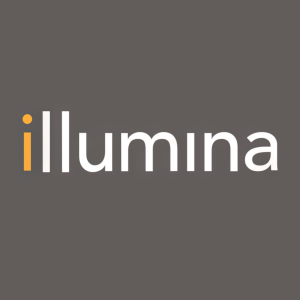Illumina collaborates with National Cancer Center Japan to address a leading cause of death in Asia
Illumina (NASDAQ: ILMN) has partnered with the National Cancer Center Japan for a research project focused on nasopharyngeal carcinoma, particularly prevalent in Asia. This study, part of the A-TRAIN initiative, aims to analyze blood-based genomic profiles of affected patients, contributing to personalized treatment development. Nasopharyngeal carcinoma has significant incidence rates in Southeast Asia, representing a critical area for new therapeutic strategies. The research involves up to 96 patients using Illumina's TruSight Oncology 500 ctDNA, highlighting regional collaboration for cancer treatment advancements.
- Partnership with National Cancer Center Japan enhances research credibility.
- Focus on nasopharyngeal carcinoma addresses a significant health issue in Asia.
- Utilization of TruSight Oncology 500 ctDNA may lead to advancements in personalized medicine.
- Limited to a rare cancer type, may restrict broader market impact.
- High dependence on regional collaboration could pose risks if partnerships falter.
Insights
Analyzing...
SAN DIEGO, Jan. 24, 2022 /PRNewswire/ -- Illumina, Inc. (NASDAQ: ILMN) and the National Cancer Center Japan have announced an international joint research project that will use Illumina's high-throughput DNA sequencing to analyse the blood-based genomic profile and clinical information of patients living with Nasopharyngeal Carcinoma. The study will be known as a part of the Asian Multicenter Prospective Study of Circulating Tumor DNA Sequencing (A-TRAIN).
One of the main research areas of the project is nasopharyngeal carcinoma, a rare tumor of the head and neck which originates in the nasopharynx and has a higher incidence rate in Asian countries. More than 80 percent of new cases occur in Asia, with Southeast Asian countries accounting for 67 percent of the global burden of all cancer. Nasopharyngeal cancer ranked ninth among incident cancers and eighth among cancer deaths in Southeast Asia.
"We are immensely proud to contribute to this international collaboration and prospective study," said Gretchen Weightman, Head of Global Commercial Strategy and General Manager of Asia Pacific and Japan at Illumina. "Through our joint efforts, we will fuel initiatives that improve health outcomes for people living with nasopharynx cancer and progress the development of personalized treatment, especially those in the Asian community where this carcinoma is most prevalent."
"As nasopharyngeal carcinoma occurs more frequently in Asia and is more difficult to treat, there is a strong need to develop new treatments," said Dr. Kan Yonemori, Principal Investigator at A-TRAIN. "A comprehensive genome profiling panel is a powerful tool to help solve this problem by using blood for genetic analysis. We are grateful for Illumina's support in enabling this important research in numerous Asian countries."
The A-TRAIN study led by the National Cancer Center Hospital Japan is an international joint research project in a number of Asian countries to develop novel treatments based on genomic abnormalities for cancers that are common in Asia. The overall project includes research involving patients with cervical cancer, ovarian cancer, ovarian clear cell carcinoma, nasopharyngeal carcinoma, endometrial cancer and breast cancer, the database will be constructed and analysed by examining genomic abnormalities comprehensively by liquid biopsy, together with clinical information such as treatment details and prognosis.
The study will be conducted as part of an international collaborative study under the Asian clinical TriaLs network for cAncerS (ATLAS) project, which aims to accelerate the implementation of clinical research and to develop personalized treatments. In this study, genomic analysis of blood samples of up to 96 patients with nasopharynx cancer will be analyzed using Illumina's TruSight™ Oncology 500 ctDNA.
Over the next year, the resulting data will be used by the Japan-led initiative to establish a platform for international collaborative trials with Malaysia, Thailand, the Philippines, Indonesia and Vietnam, which are actively promoting cancer treatment development in the Asian region.
About TruSight Oncology 500
TSO 500 is a Research Use Only comprehensive pan-cancer assay designed to identify 523 known and emerging tumor biomarkers. TSO 500 utilizes both DNA and RNA from tumor samples to identify key variants critical for cancer development and progression, such as small DNA variants, fusions, and splice variants. Based on the content of TSO 500, Illumina will be adding an in vitro diagnostic test to the TruSight Oncology product family. This comprehensive tumor profiling assay will have similar chemistry and analytics to TSO 500. To learn more about TSO 500, click here.
About Illumina
Illumina is improving human health by unlocking the power of the genome. Our focus on innovation has established us as a global leader in DNA sequencing and array-based technologies, serving customers in the research, clinical, and applied markets. Our products are used for applications in the life sciences, oncology, reproductive health, agriculture, and other emerging segments. To learn more, visit www.illumina.com and connect with us on Twitter, Facebook, LinkedIn, Instagram, and YouTube.
References
1H. Salehiniya, M. Mohammadian, A Mohammadian-Hafshehani, N. Mahdavifar. Nasopharyngeal Cancer in the World: Epidemiology, Incidence, mortality and Risk Factors. WCRJ 2018;5 (1): e1046
Investors:
Salli Schwartz
858.291.6421
IR@illumina.com
Media:
Dr. Karen Birmingham
EMEA: +44 7500 105665
US: 646.355.2111
kbirmingham@illumina.com
![]() View original content to download multimedia:https://www.prnewswire.com/news-releases/illumina-collaborates-with-national-cancer-center-japan-to-address-a-leading-cause-of-death-in-asia-301466262.html
View original content to download multimedia:https://www.prnewswire.com/news-releases/illumina-collaborates-with-national-cancer-center-japan-to-address-a-leading-cause-of-death-in-asia-301466262.html
SOURCE Illumina, Inc.








